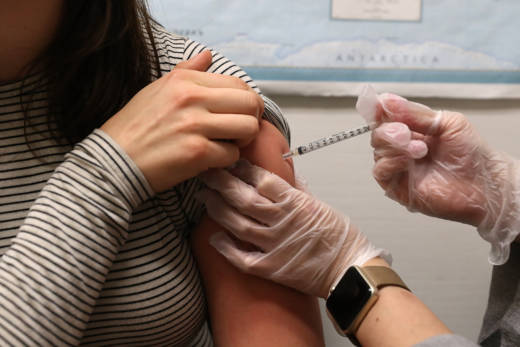The Collaboration posted a statement on its website Saturday, saying, “Cochrane’s Governing Board considered, as planned, the findings of an independent review and additional complaints related to the conduct of a Member.” The complaints were not specified, but the statement said the board’s co-chairs will provide more details “once this process is complete.”
In a longer response posted Monday, Cochrane’s governing board said that it finds itself in “an extraordinary situation” and that the four board members who resigned “actively disseminated an incomplete and misleading account of events.”
The decision, the board said, “is not about freedom of speech. It is not about scientific debate. It is not about tolerance of dissent. It is not about someone being unable to criticize a Cochrane Review.”
Instead, the board said, “It is about a long-term pattern of behaviour that we say is totally, and utterly, at variance with the principles and governance of the Cochrane Collaboration.” Although the board did not describe the behavior, the pattern, it claimed, dated back to complaints since 2003, and included three new complaints in March of this year. “All our staff, and our members, have the right to do their work without harassment and personal attacks,” the statement said.
Gøtzsche, the director of the Nordic Cochrane Center, in Copenhagen, Denmark, has cast doubts about the safety of a vaccine against human papillomavirus (HPV), a cause of cervical cancer, and says psychiatry has “gone astray” by coercing patients into taking medication, such as antidepressants, they don’t want to use and that cause “brain damage” over the long run. “The way these drugs are used today cause[s] more harm than good. So it would be better for us if the drugs didn’t exist.”
Gøtzsche, Cochrane member Tom Jefferson, and another colleague ruffled feathers at Cochrane with a July 2018 article that criticized a recent paper from the Collaboration on the safety of the HPV vaccine. The paper prompted a rebuttal from Cochrane that dismissed the concerns and stood behind the original findings.
Hilda Bastian, a founding member of the Cochrane Collaboration and an influential writer about science, called the review “a manufactured controversy — a hatchet job by people with such strong intellectual and ideological biases, that they didn’t even pick up that some of their most implausible allegations were based on their own analytical and investigative slip-ups.”
Complaints about the review that Gotzsche co-authored came late in the process, according to the board’s Monday statement, and were not the initial trigger of the investigation.
As of now, the board said, Gotzsche remains a member of the organization. He was given seven days to respond to the board’s vote. He did not immediately respond to a request for comment from STAT and Retraction Watch.
Gøtzsche, who was elected to the group’s board of governors in 2017, blamed the vote on his stance on the drug industry. “As most people know, much of my work is not very favourable to the financial interests of the pharmaceutical industry. Because of this Cochrane has faced pressure, criticism and complaints. My expulsion is one of the results of these campaigns.”
Jefferson, speaking from a reception at the Edinburgh meeting, told Retraction Watch and STAT that people he’s spoken to are outraged. “I’ve been in Cochrane 25 years, this is not how we do things,” he said. “Peter Gotzsche was a democratically elected member of the board. It’s really unheard of.”
At least one prominent scientist expressed alarm that the move to jettison Gøtzsche was an assault on free speech. John Ioannidis, of Stanford University, said he is “disturbed” by Gøtzsche’s expulsion and stressed the importance of heterodox views in science.
“I adore Peter for his courage and I highly value his major contributions to evidence-based medicine … even if I don’t agree with all of Peter’s views and inferences,” Ioannidis wrote Sunday in an email to a group of more than 100 experts in evidence-based medicine. “I think it is important to make sure that people who disagree with us will get the most opportunity to express and support their views with arguments and evidence and, of course, not get expelled.”
But at least one other expert defended Cochrane. Allen Frances, chair of the Department of Psychiatry at Duke University, in Durham, N.C., dismissed the notion that Gøtzsche was being unfairly muzzled.
“This has nothing to do with freedom of speech,” Frances wrote in the thread that included Ioannidis. Rather, he said, Cochrane is justifiably concerned about remaining an “impartial evaluator of evidence” and providing reliable information to doctors and their patients.
“At least in psychiatry, Peter is anything but impartial,” Frances wrote. “He consistently expresses the most extreme views in the most dramatic and misleading way. His role at Cochrane lends its legitimacy to opinions that are dangerous to patients with severe mental illness. As an individual, Peter has total freedom to express extreme opinions, but he has no inherent right to cloak them with Cochrane’s hard won mantle of neutrality.”
The four board members who resigned in the wake of the vote said in a statement Saturday that “the expulsion of inconvenient members from the Collaboration goes against Cochrane ethos and neither reflects its founding spirit nor promotes the Collaboration’s best interests. We are concerned that these actions might cause great damage to the reputation of the Collaboration.”
In its own statement, the governing board said that two other members had resigned because the “situation required further changes in the composition of the Board in order to comply with Cochrane’s Articles of Association.” Neither of the board’s co-chairs immediately responded to requests for comment.
“There appears to be no confidence in the management board at this point,” Jefferson said. “I think the only honorable thing for the rest of the board to do is resign.”
This story has been updated with a statement from Cochrane’s governing board. The story is a collaboration between STAT and Retraction Watch.

